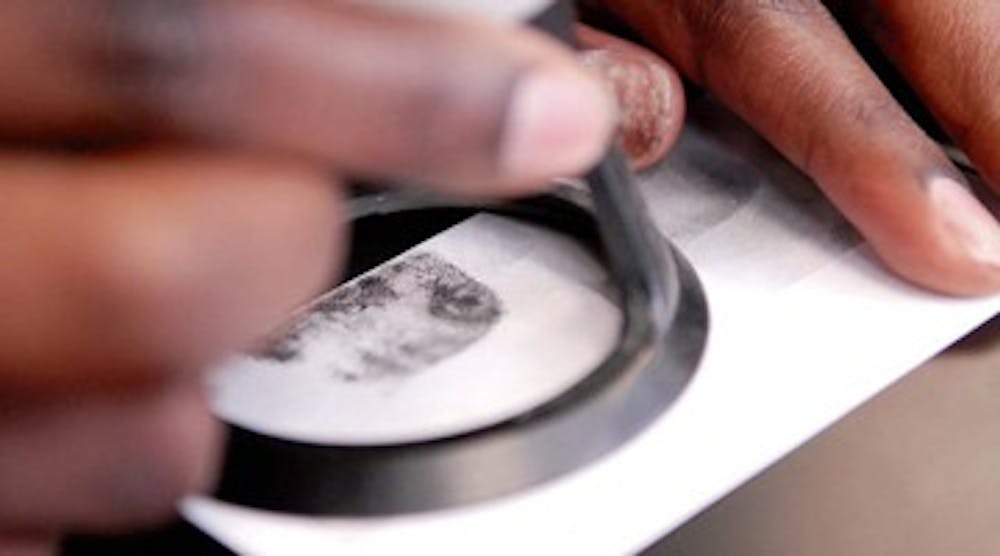
Yesterday at Sayre High School in West Philadelphia, a businessman sat dead at a desk, surrounded by pills and alcohol.
But no one called the police - the whole scene was staged by Penn students for high schoolers learning about forensic science.
In CSI and Science in High School, an academically based community service course at Penn, students teach chemistry and forensic science to high-school juniors. The class is just one of 60 ABCS courses offered this year in conjunction with the Netter Center for Community Partnerships.
At the high school yesterday, the student detectives were confronted with a mock crime scene.
The 10 students in the course, taught by Nursing professor Kathleen Brown, made up the story line for the crime: A man is found dead surrounded by pills and alcohol while visiting Philadelphia on a business trip; the two main suspects are his stepson and girlfriend.
The high-school students photographed and sketched the crime scene, which the Penn students had set up earlier.
A retired New Jersey state trooper guided them through the process of gathering evidence and demonstrated how investigators use a CrimeScope - a high-powered light - to discover latent fingerprints invisible to the naked eye. Another trooper posed as the dead man.
"This is another way of giving them a reference to why we do chemistry," said Jack MacConnell, who was a trooper for 25 years and met Brown through their work with the N.J. Division of Criminal Justice.
The Penn students, meanwhile, manned the other CSI stations, where students took their own fingerprints and viewed a surveillance video associated with the mock crime. The Penn class will visit the school seven more times to teach DNA and forensic toxicology before the end of the semester, at which point the group of high school students that solves the crime will receive a prize.
Jennifer Boyd-Waller, who teaches the two chemistry classes at Sayre with which the ABCS course is affiliated, said her students have often asked her why they need to learn chemistry.
Now, they can't get enough of it.
"I think it's fun," said Hairston Pressley, a student in Boyd-Waller's class. "It gives us insight into how evidence is taken from crime scenes."
And Penn students rave about the ABCS courses, too.
Joanne Hwang, a College senior who is taking her second ABCS course, praised the program as one of the best ways that Penn "reaches out into the community."
This semester, ABCS courses are being taught in the History, Anthropology, Fine Arts, Math, Music, and Political Science departments, among others.
Most of the courses involve teaching in West Philadelphia schools, although "some are based around problem-solving in the University, looking at the curriculum and ways to improve it," Cory Bowman, the associate director of the Netter Center for Community Partnerships said.
These courses "provide College students and students in the other schools with a great way to translate the theoretical to the practical in a variety of settings," College Dean Dennis DeTurck wrote in an e-mail.
The Daily Pennsylvanian is an independent, student-run newspaper. Please consider making a donation to support the coverage that shapes the University. Your generosity ensures a future of strong journalism at Penn.
DonatePlease note All comments are eligible for publication in The Daily Pennsylvanian.




